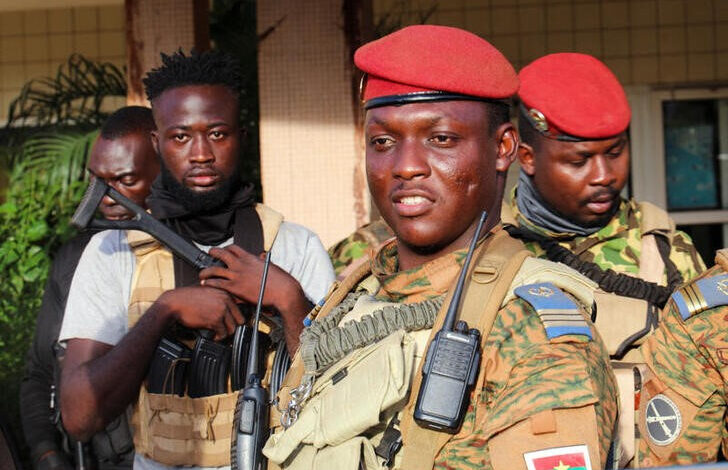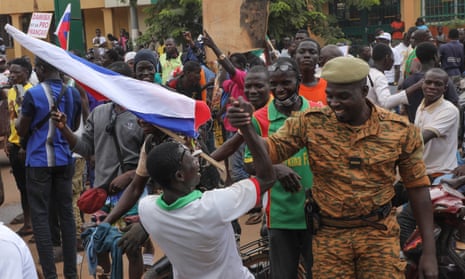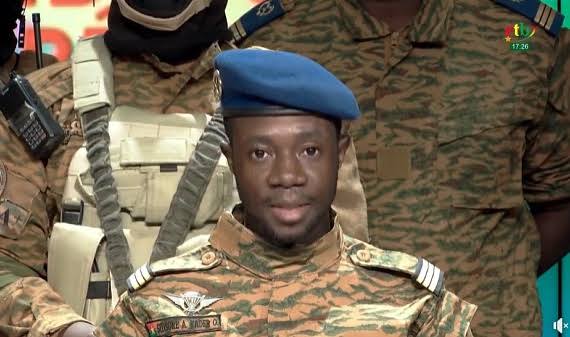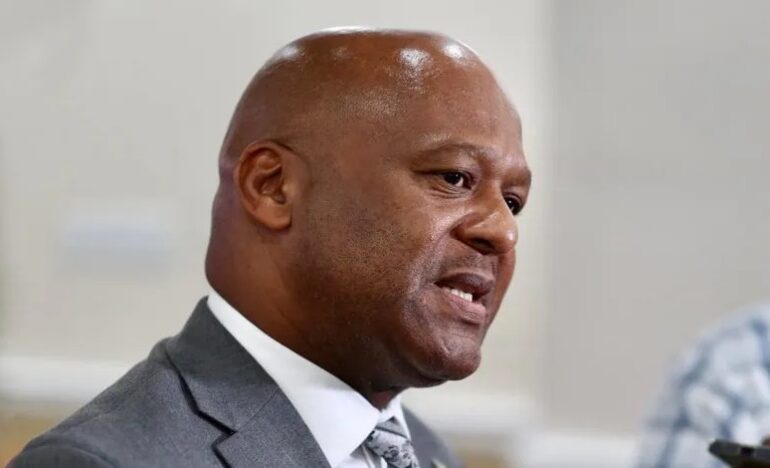
Ekeomah Atuonwu
Little is known about Traore and his associates, who have made speeches on national television since Friday while displaying weapons, ammo belts, and masks.
On Sunday morning, Captain Ibrahim Traore, the most recent military dictator of Burkina Faso, stepped from the turret of an armored personnel carrier as a heavily armed convoy passed through a crowd cheering them on.
Since he and a squad of troops deposed President Paul-Henri Damiba in a coup on September 30, Traore, a relatively low-ranking colonel who was managing an artillery unit in a small northern town, has gained international attention.
In one of the world’s poorest nations, where millions of people suffer everyday problems due to drought, food shortages, and deteriorating health and educational institutions, they must overcome enormous obstacles. However, politics and violence have been the first focal points.
Traore, a lifelong soldier who has fought on the front lines against Islamist extremists in the north, maintained he would not be in control for very long in an interview with Radio France International on Monday.

By the end of the year, a national conference will choose a new temporary leader. He said that person, who can be civilian or military, would uphold a deal with the regional group for West Africa and supervise the return of civilian administration by 2024.
Their actions, which could involve army reform and linkages to new international allies like Russia, could reshape West African politics and modify how Burkina Faso combats an Islamist insurgency that has claimed thousands of lives and driven millions of people from their homes.
When Damiba staged his own coup in January, army officers initially backed him and pledged to crush the Islamists. But their tolerance quickly ran out. According to Traore’s junta, Damiba refused to restructure the military. Attacks got worse. Just last week, an attack in the north claimed the lives of at least 11 soldiers.
While regional neighbors and western powers denounced the coup, Russia professed support for it.
“I salute and support Captain Ibrahim Traore,” read a statement from Russian businessman Yevgeny Prigozhin, founder of private military company Wagner Group, which has operations across Africa, including in Burkina Faso’s neighbour Mali.
Their actions, which could involve army reform and linkages to new international allies like Russia, could reshape West African politics and modify how Burkina Faso combats an Islamist insurgency that has claimed thousands of lives and driven millions of people from their homes.
Meanwhile, he must juggle everyday problems. On Sunday, he arrived in military fatigues to a meeting with ministerial officials which was streamed online.

Can the junta guarantee the safety of schools that reopen this week, they asked their new leader. What is being done about a tender for a railway link to Ghana?
Traore, who had to consult with advisers, did not have all the answers.




